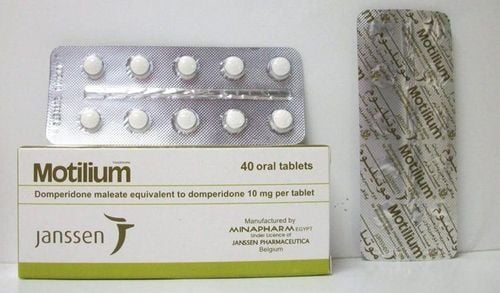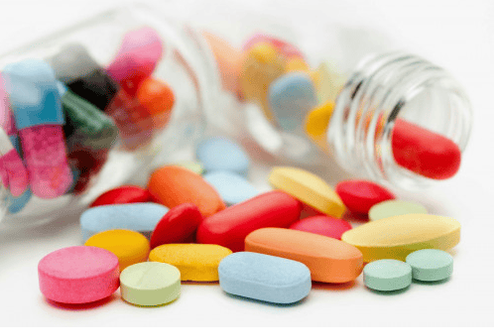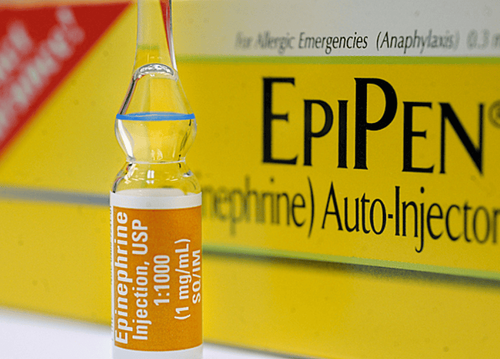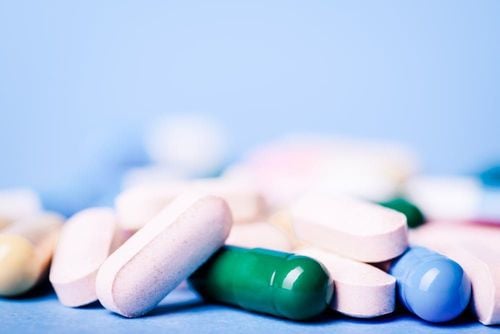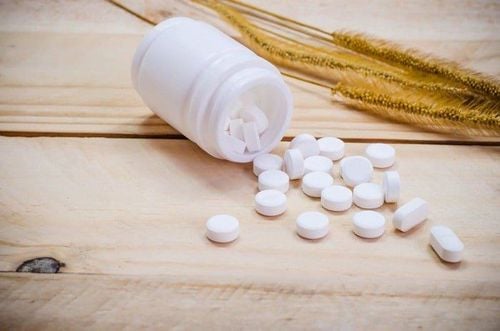This is an automatically translated article.
The article was professionally consulted by Pharmacist Quang Anh Nguyet - Pharmacist in charge of pharmacies - Faculty of Pharmacy - Vinmec Central Park International General HospitalNon-steroidal anti-inflammatory drugs (NSAIDs) are used by many people, but not everyone is aware of the side effects and health effects caused by this drug. The following article will help us learn more about NSAIDs.
1. What are non-steroidal anti-inflammatory drugs?
Non-steroidal anti-inflammatory drugs are drugs with analgesic and anti-inflammatory effects, with or without antipyretic, without steroids in structure (different from the corticosteroid anti-inflammatory group, which has the side effect of salt and water retention). Some common non-steroidal anti-inflammatory drugs are aspirin, naproxen, diclofenac, ibuprofen...
2. Mechanism of action of non-steroidal anti-inflammatory drugs
Non-steroidal anti-inflammatory drugs have analgesic, anti-inflammatory, antipyretic and antiplatelet effects. Depending on the drug, the degree of these effects will manifest more or less. Mechanism:
Antipyretic: increases heat loss, restores balance to the heat center in the hypothalamus, helps lower body temperature. Pain relief: inhibiting PGF2 alpha biosynthesis, reducing the receptivity of sensory nerve endings to pain-causing substances such as histamine, serotonin, etc. to help patients reduce pain, used in mild and moderate pain such as: toothache, headache, joint pain, not as strong analgesia as opoid (morphine) pain relievers. Anti-inflammatory: inhibits the biosynthesis of prostaglandins through inhibition of the enzyme cyclooxygenase. In addition, the drug also inhibits kinins - chemical mediators of the inflammatory response. NSAIDs help to stabilize the lysosomal membrane of macrophages, helping to release lysosomal enzymes and superoxide ions leading to reduced inflammation. Antiplatelet and anticoagulant: inhibits the enzyme thromboxane synthetase, reduces the synthesis of thromboxane A2, which is a platelet coagulant. However, at high doses, the drug increases platelet aggregation and increases blood clotting.

Tác dụng chính của thuốc chống viêm không chứa steroid là giảm đau, chống viêm, hạ sốt và ngưng tiểu cầu
3. Risk of complications when using non-steroidal anti-inflammatory drugs
The drug can cause allergic reactions such as skin rash, urticaria, difficulty breathing.
Long-term use of non-steroidal anti-inflammatory drugs can cause peptic ulcers, gastrointestinal bleeding, acute interstitial nephritis or renal failure.
Due to the drug's inhibitory effect on platelet aggregation, the drug can cause cytotoxicity, leukopenia, myelosuppression, and coagulation disorders.
COX-2 specific NSAID inhibitors such as celecoxib have fewer side effects on the stomach and kidneys, but can increase cardiovascular events in subjects with a history of cardiovascular disease, especially pre-existing conditions. history of coronary heart disease, high blood pressure...
If the user uses an overdose of the drug, or uses the wrong dose, the drug may cause some side effects such as: tinnitus, deafness, drunkenness, confusion blood disorders, loss of liver function, peptic ulcer disease.
It should be noted not to combine non-steroidal anti-inflammatory drugs together because they do not increase the healing effect but only increase the side effects of the drug.
4. Indications and contraindications of non-steroidal anti-inflammatory drugs
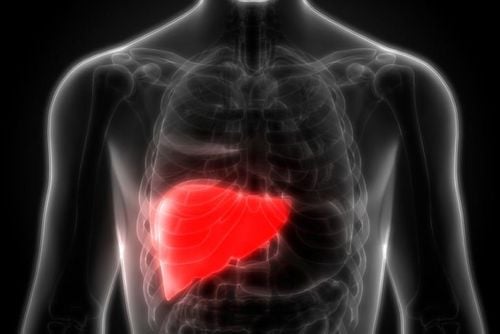
Suy gan mức độ nặng không được sử dụng thuốc kháng viêm không chứa steroid
The drug is indicated in:
Arthritis diseases such as rheumatoid arthritis, reactive arthritis ... Systemic diseases ( lupus erythematosus, systemic scleroderma...) Osteoarthritis, spondyloarthritis, shoulder pain, sciatica... Software diseases caused by rheumatism such as shoulder arthritis, humeral conjunctivitis... Absolute contraindications for the following patients:
Patients with pathology uncontrolled bleeding History of allergy to the ingredients of the drug Stomach ulcers Severe liver failure Kidney failure, Women in the first or third trimester of pregnancy, women who are breastfeeding. Patients should absolutely take the correct dose according to the doctor's instructions. Do not arbitrarily increase the dose, do not exceed the maximum dose.
Please dial HOTLINE for more information or register for an appointment HERE. Download MyVinmec app to make appointments faster and to manage your bookings easily.




